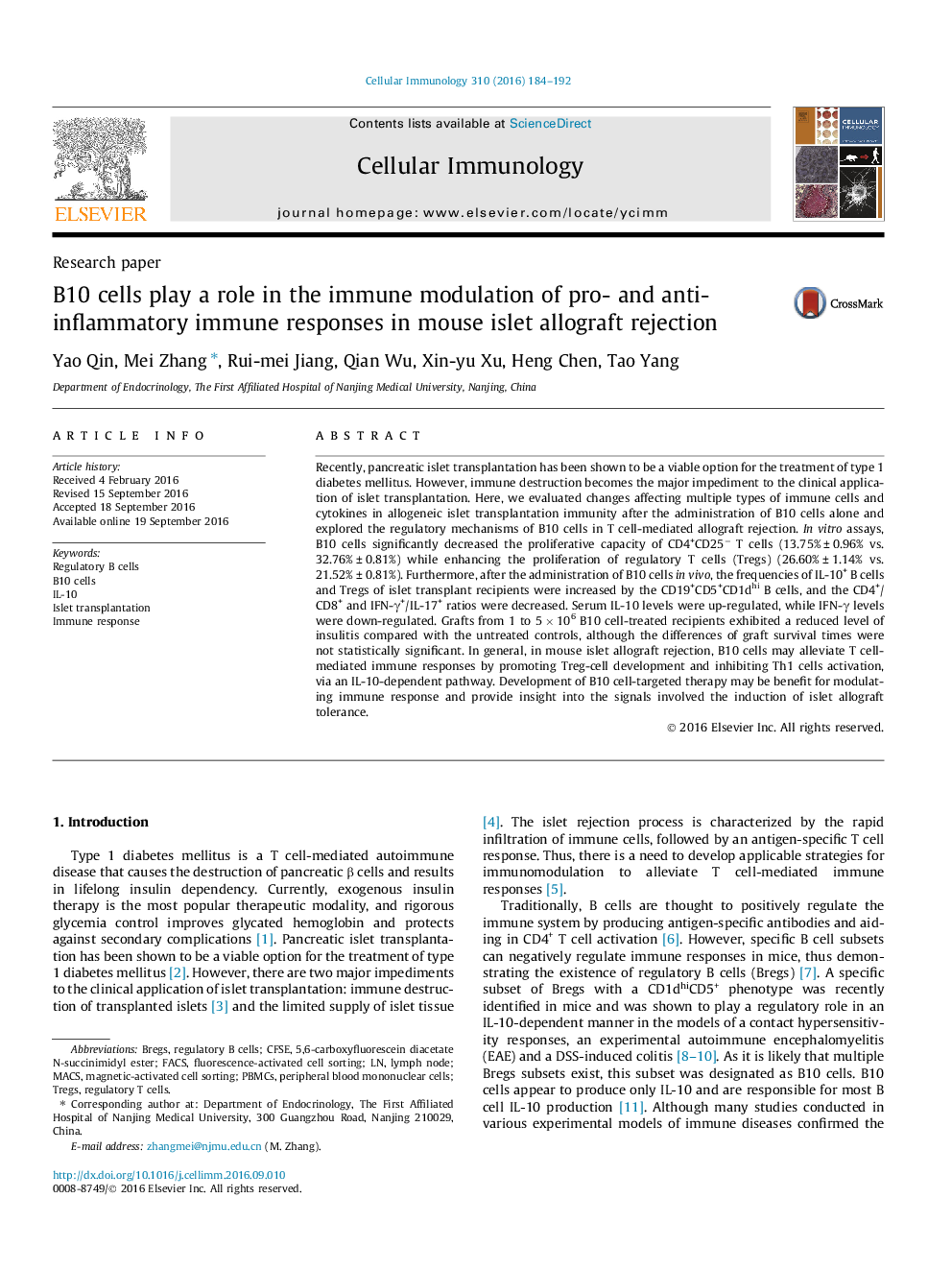| کد مقاله | کد نشریه | سال انتشار | مقاله انگلیسی | نسخه تمام متن |
|---|---|---|---|---|
| 5530733 | 1549389 | 2016 | 9 صفحه PDF | دانلود رایگان |

- B10 cells promoted Treg-cell development and inhibited Th1 cells activation.
- B10 cells regulated the local immune responses of transplant recipients.
- Development of B10 cell-targeted therapy is benefit for modulating immune response.
Recently, pancreatic islet transplantation has been shown to be a viable option for the treatment of type 1 diabetes mellitus. However, immune destruction becomes the major impediment to the clinical application of islet transplantation. Here, we evaluated changes affecting multiple types of immune cells and cytokines in allogeneic islet transplantation immunity after the administration of B10 cells alone and explored the regulatory mechanisms of B10 cells in T cell-mediated allograft rejection. In vitro assays, B10 cells significantly decreased the proliferative capacity of CD4+CD25â T cells (13.75% ± 0.96% vs. 32.76% ± 0.81%) while enhancing the proliferation of regulatory T cells (Tregs) (26.60% ± 1.14% vs. 21.52% ± 0.81%). Furthermore, after the administration of B10 cells in vivo, the frequencies of IL-10+ B cells and Tregs of islet transplant recipients were increased by the CD19+CD5+CD1dhi B cells, and the CD4+/CD8+ and IFN-γ+/IL-17+ ratios were decreased. Serum IL-10 levels were up-regulated, while IFN-γ levels were down-regulated. Grafts from 1 to 5 Ã 106 B10 cell-treated recipients exhibited a reduced level of insulitis compared with the untreated controls, although the differences of graft survival times were not statistically significant. In general, in mouse islet allograft rejection, B10 cells may alleviate T cell-mediated immune responses by promoting Treg-cell development and inhibiting Th1 cells activation, via an IL-10-dependent pathway. Development of B10 cell-targeted therapy may be benefit for modulating immune response and provide insight into the signals involved the induction of islet allograft tolerance.
Journal: Cellular Immunology - Volume 310, December 2016, Pages 184-192